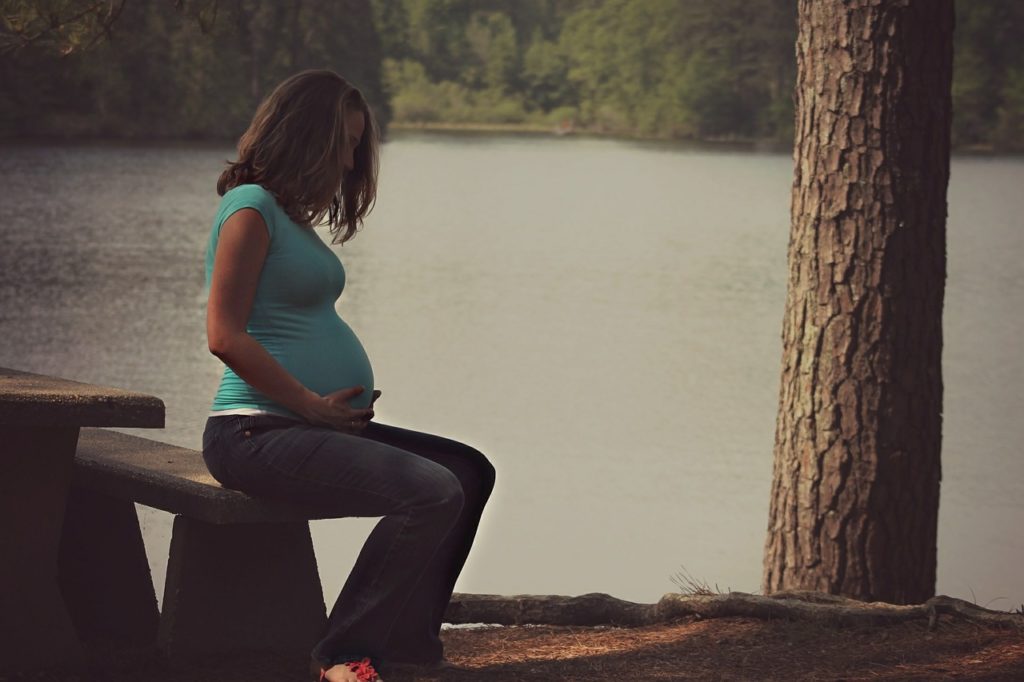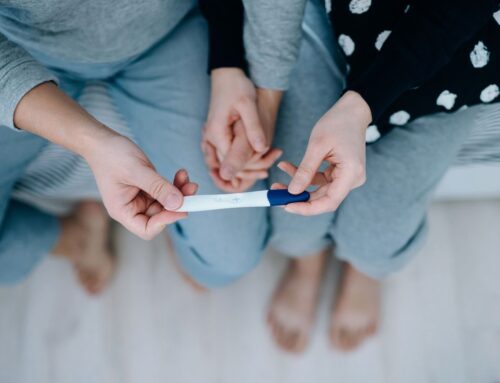
When facing an unplanned pregnancy, there are many tough decisions to be made. No decision is right or wrong, you just need to research all your options and make the decision you believe is right for you and your baby. No matter what you decide, you may have family members and friends who are not as supportive as you would like. They may not understand your reasons or believe that you are making the wrong choice and may even try to pressure you to make a different decision. During this difficult and emotional time, it is important to surround yourself with people who are supportive of your choice so you can turn to them when you need.
Telling your family and friends that you are pregnant can be scary and sharing your decision that you are considering adoption can be overwhelming. You may worry they will yell or cry or be disappointed. You may also be worried that they won’t understand or agree with your decision to place your baby for adoption. Here is a previous post on How to Tell Loved Ones You Are Pregnant that you may find helpful to read before starting the big conversation.
Once you tell your parents and friends that you are pregnant and considering adoption, they might make comments like, “I could never give up my child because I love them too much,” or “you made your bed, now you have to lay in it.” These are very hurtful words coming from people you love. Often times, it helps to remember that they might be a little shocked at your news and more importantly they haven’t yet done the research on adoption as you have so they might not know much about the process or about open adoption.
Why There Might Be a Lack of Support After Placement
There are many different reasons you might feel a lack of support from your family members and friends after you placed your baby. It is very hard for someone who hasn’t walked in your shoes to fully understand how difficult making the decision was.
- They Might Not Know What to Do or Say to Help You.
Seeing someone you love in pain and going through a wide range of emotions can be hard for family and friends. They might not know if it’s ok to ask you how you are doing or if you would prefer that they just don’t talk about it. To help your family and friends be more supportive, it is important to let them know what you need. If you want to talk about it, let them know that. If you prefer not too, that’s ok too. If you need help to keep busy or have someone to hug when you are sad, letting your family and friends know these things can help them to help you during this difficult time after placement.
- They Probably Don’t Understand Adoption as Well as You.
In deciding that adoption was the right choice, you did a lot of research and spoke with professionals about making your plan. Keep in mind, your family and friends might not know much of anything about adoption and people often fear what they don’t know. If you feel like it would help and you are comfortable doing so, sharing why you choose adoption and what the process was for you can be helpful. If you are involved in an open adoption, talk to your family and friends about what that means. Adoption today is very different than it was many years ago. Open adoption has so many benefits to both you and your child and so talking about what open adoption means can help your friends and family better understand.
- They Might Not Agree With Your Decision
Even if your parents, family members and friends think you should have parented, they can still be a support for you. It’s ok to let them know that even though they don’t agree with your decision that they can still be there to listen when you need to talk because they love it. This is a time when even if they disagree, they can show how much they love you.
- They are Grieving Too
Remember that your parents experienced a loss too, not in the same way as you did but there is still a loss. If this is their first grandchild it may be extra hard to your parents. There are 5 stages of loss and grief (denial & isolation, anger, bargaining, depression, and acceptance) and each person deals with grief and these stages in their own way. It might be hard for your parents to tell you that they are sad too because they don’t want you to think that you made the wrong decision.
- They Might See Your Sadness and Think It Means You Regret Your Decision
The short answer is of course you are sad. How can you not be. This was the most difficult decisions you have had to make and you broke your own heart for the love you have for your child. Sadness doesn’t always mean regret but to those on the outside, it may be hard to understand that it’s ok to be sad while also being content in your decision.
Finding an External Support System
If you find that your parents and friends are just not able to be supportive, don’t let that stop you from getting support somewhere else. This is such an important time for you to surround yourself in a supportive environment. If you can’t find that environment with family and friends, there are many ways to find external support to help you after placement.
Agency Support:
If you placed through an adoption agency, your counselor should be able to provide different types of support before, during and after placement. The agency may even be able to connect you with other birthmothers who can be mentors and friends during your journey.
Online Support:
There are lots of online avenues to reach out and connect with other birthmothers. One great resource is called BirthmomBuds.com. It is a place where birthmother’s share their experiences and come together in support. There are also lots of great blogs out there written by birthmothers. Reading other birthmothers’ blogs or even writing your own can help connect you with other women who have placed children.
Unexpected Places:
As you open up to others about being a birthmother, you may find that others share their own adoption experiences with you.
Support Is Important No Matter Where You Find It
No matter where you ultimately find support, the important part is that you have it. You have made a difficult decision and in order to help you through the stages of loss and grief and to start healing you need supportive friends along your side. Who knows, by speaking about your experiences, you might find that you are able to provide support to an expecting mother considering adoption too.





